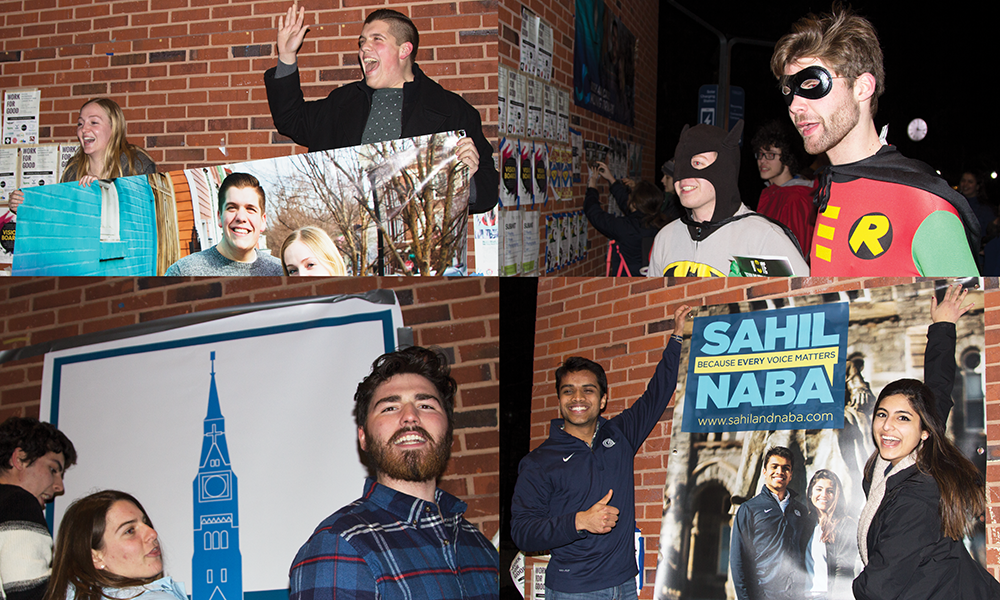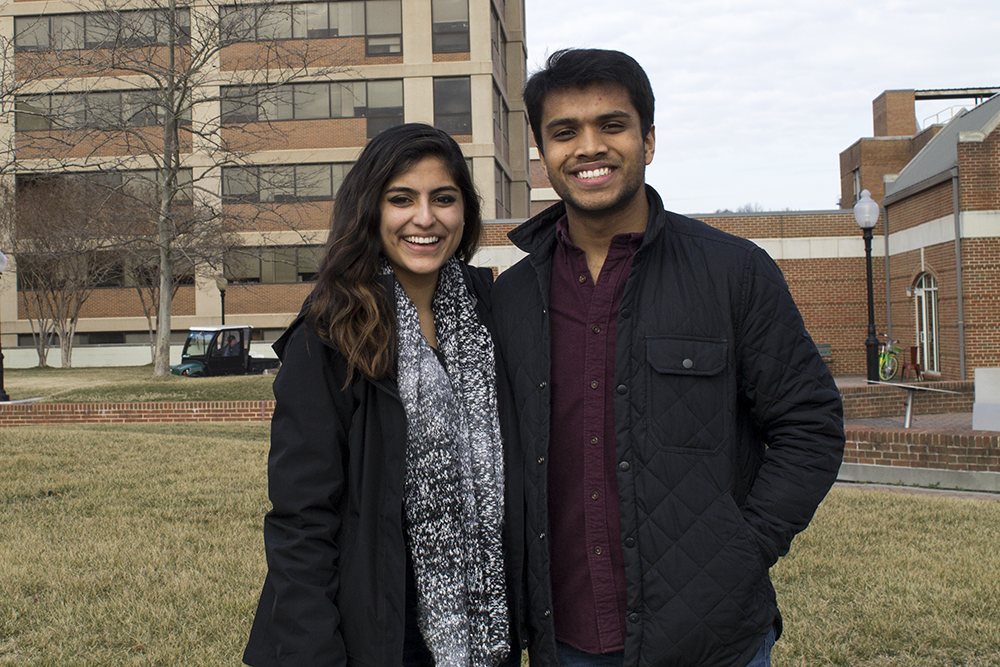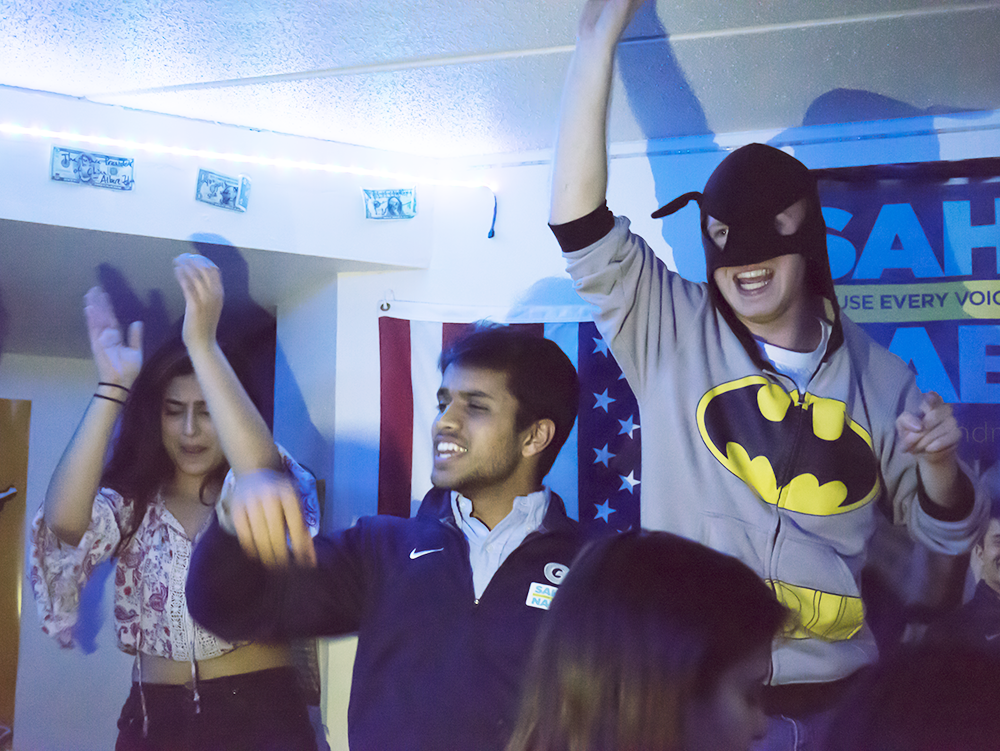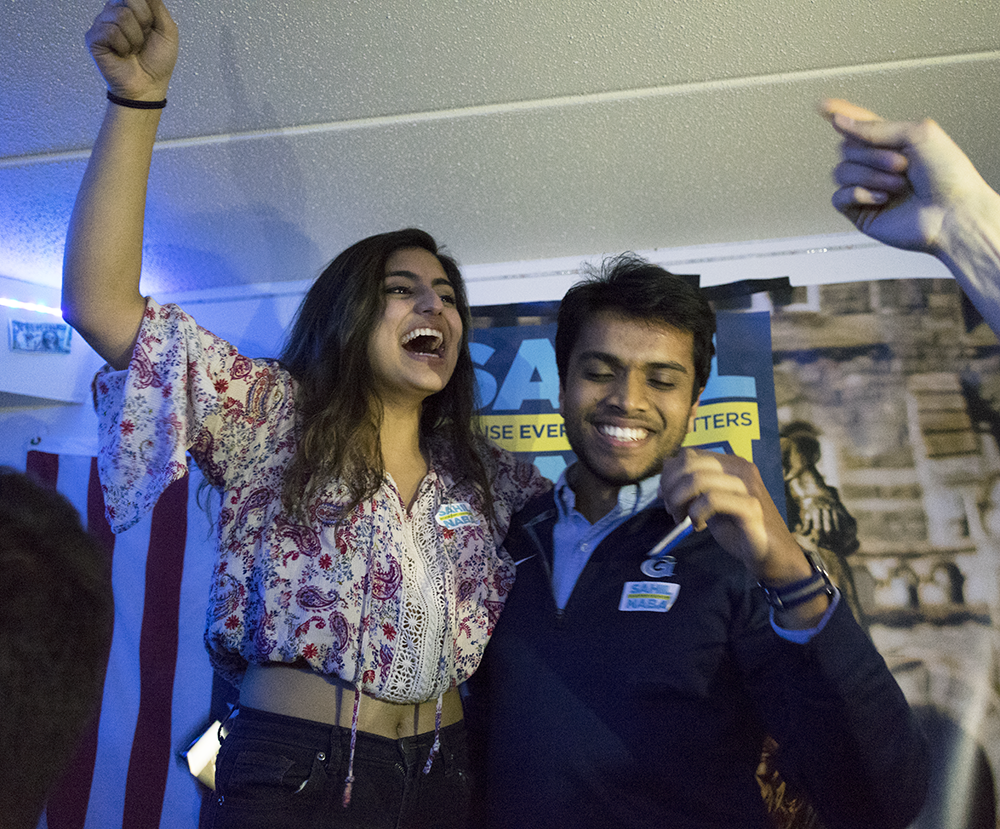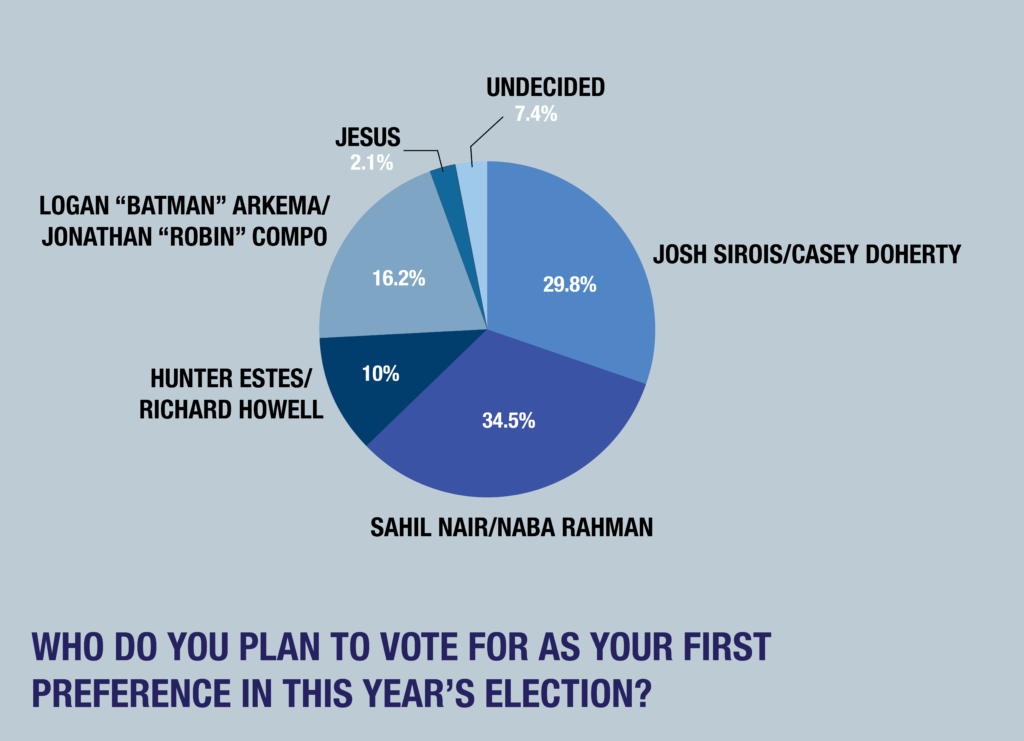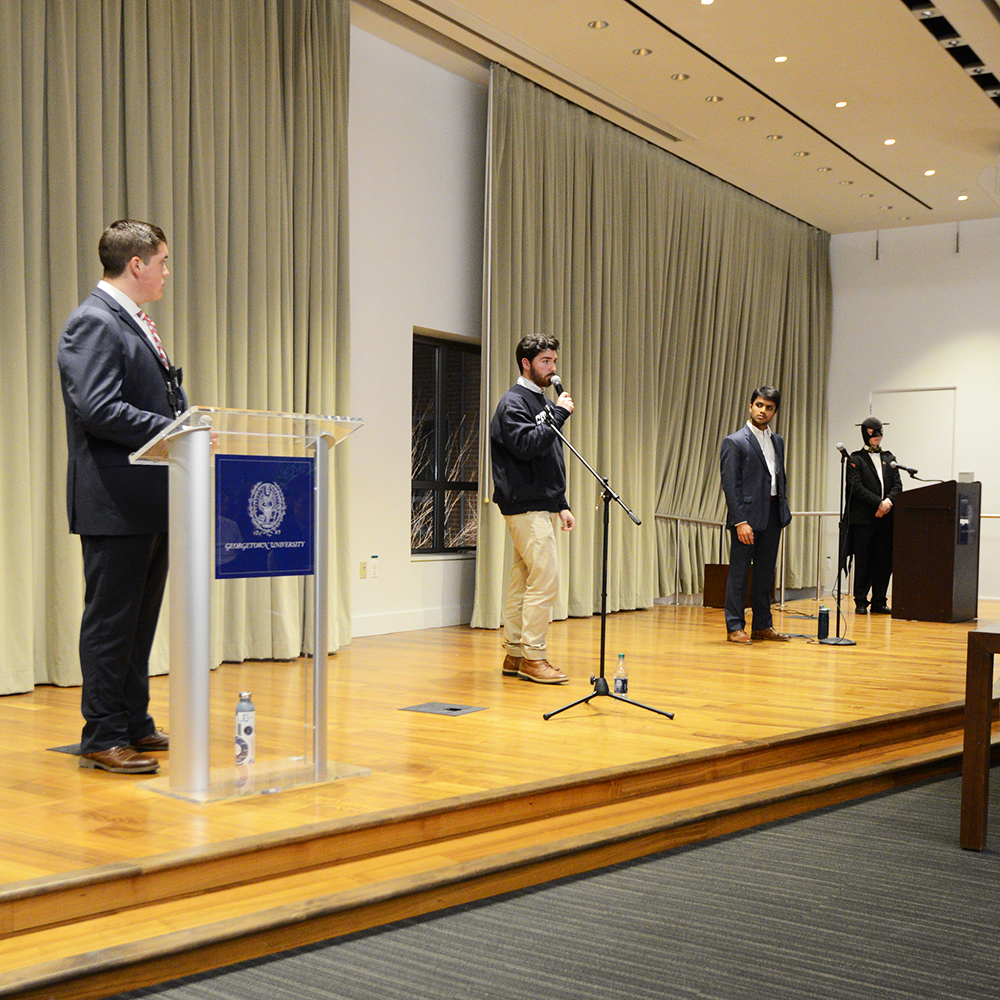All three seats of the Constitutional Council, the Georgetown University Student Association’s judicial body, remain vacant two days before the start of campaigning for the 2018 GUSA executive election, after the three council members resigned simultaneously Jan. 19 amid heightening tensions with the GUSA senate.
Student leaders hope to nominate and confirm replacements before Feb. 22, when the student body votes on a new GUSA president, vice president and a referendum proposing senate election reforms. Per GUSA bylaws, the council may not meet for official business unless all three seats are filled.
The council is charged with interpreting GUSA’s bylaws. The council also adjudicates disputes during elections and referenda, particularly disputes left unresolved by GUSA’s Election Commission. In January 2016, the council invalidated a referendum championed by senate leadership to replace the senate body with a smaller assembly focused primarily on club funding.
GUSA President Kamar Mack (COL ’19) and GUSA Vice President Jessica Andino (COL ’18) plan to review applications and nominate new councilors within the next two weeks, according to Aaron Bennett (COL ’19), GUSA executive press secretary. Per GUSA bylaws, Mack and Andino’s nominees must be confirmed by a majority of the senate.
It remains unclear how any disputes that may arise during the campaign would be addressed in the meantime if the GUSA senate does not confirm new council members before executive elections in two weeks, Mack said.
“An entirely vacant court going into election season is, to my knowledge, unprecedented in institutional memory,” Mack wrote in an email to The Hoya. “However we’re confident that the commissioners on the Election Commission will do a stellar job and remain fair and unbiased throughout this entire process — leaving no reason for the Constitution Council to get involved.”
Bennett said the executive received 12 applications and plans to start interviewing candidates to determine which three will be chosen.
“We hope this process will be concluded before the end of election season,” Bennett wrote in an email to The Hoya.
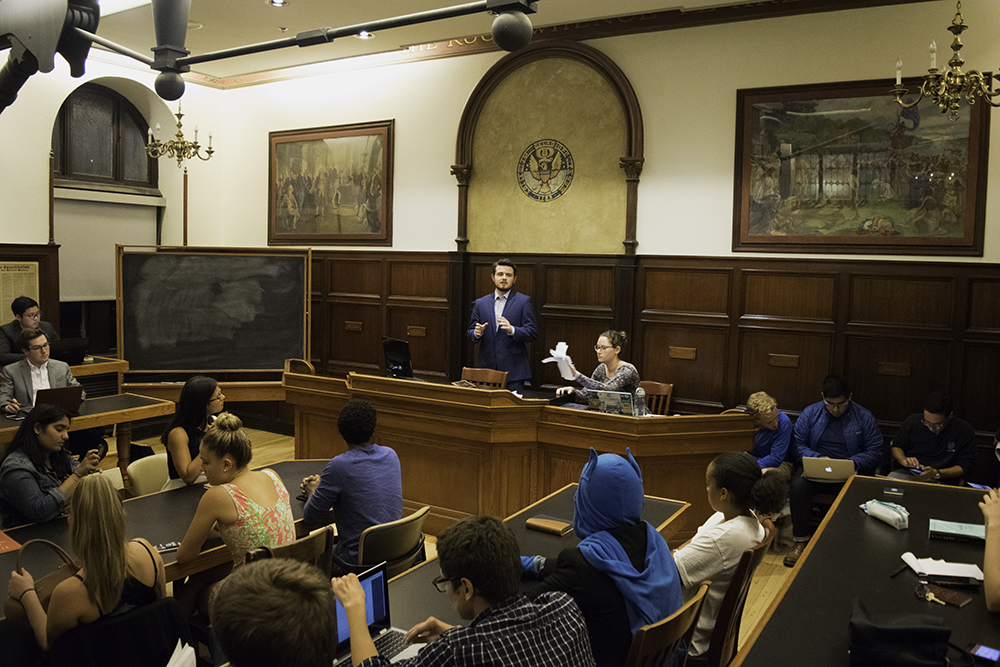
GUSA Senate Speaker Ben Baldwin (SFS ’19) expects the senate will confirm new councilors before the Feb. 22 executive election and referendum on senate reform.
“The selection of the Constitutional Council and their nomination should not impact the election/referendum as long as the whole process is completed before then,” Baldwin wrote in an email to The Hoya.
The race to fill the council followed the nearly simultaneous resignation of all three former councilors Jan. 19, as the senate prepared to consider impeachment proceedings against Russell Wirth (COL ’19), former constitutional councilor and the council’s chair, because he is studying abroad. Wirth resigned before the senate moved forward with formal proceedings.
Former Councilor Mattie Haag’s (COL ’18) letter of resignation referenced animosity between the two GUSA bodies as an impetus for her departure.
“It is with great sadness that I remove myself from this role; however, I no longer wish to serve in an environment that has become hostile and antagonistic towards myself and my fellow Councilors,” Haag wrote in her letter.
Jonathan Lanz (COL ’19), the third of the former councilors, referenced sparring between the council and the senate in his resignation letter. He also referenced past conflicts over the council’s written opinions, an apparent reference to last year’s voided senate referendum.
“My decision to resign stems not just from current tensions between the Council and the Senate, but also the conflicts during the past academic year which concerned our written opinions,” Lanz wrote in his letter of resignation Jan. 19. “At this point, I believe that I can no longer serve my peers effectively and without bias.”
Christopher Holshouser (MSB ’18), a GUSA senator and chair of the Financial Appropriations Committee, said some members of the senate did not believe Wirth could perform his duties adequately while studying abroad and thought that video conferencing would restrict the student body’s access to GUSA.
Holshouser had previously led a resolution in the senate in October to delay Haag’s nomination, citing unspecified concerns he said students had brought him.
“Given the fact that the then-Chair [Wirth] is five hours ahead of our current timezone and the level of detail and time that goes into both hearings and deliberations, the Senate felt his confidence in video presence being sufficient was misplaced,” Holshouser wrote in an email to The Hoya.
Holshouser said the senate received all letters of resignation, written using the same letterhead, within five minutes, which he interpreted as a coordinated decision and a symbolic act by the other two councilors.








